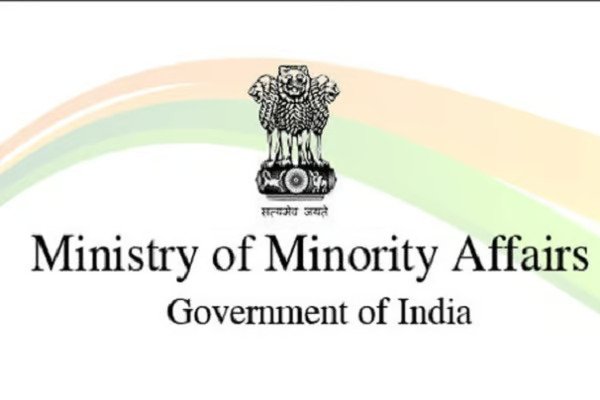(Dr Shujaat Ali Quadri)
During the past several years, accusations of hostility towards Waqf boards by the Ministry of Minority Affairs have surfaced, raising concerns about the relationship between the ministry and the entities responsible for managing Waqf properties. This issue is multifaceted, involving perceptions of neglect, interference, or inadequate support from the ministry towards Waqf boards across the country.
Contrary to the beliefs, the Ministry of minority affairs continued to discharge its duties thereby eliminating any doubts regarding hostilities. In a similar yet significant move towards modernization and efficiency, the Ministry of Minority Affairs has embarked on a comprehensive initiative to computerize Waqf records across the country. This initiative marks a pivotal moment in the management of Waqf properties, aiming to streamline processes, enhance transparency, and preserve the invaluable cultural heritage associated with Waqf institutions.
Waqf, an Arabic term meaning “endowment,” refers to charitable donations of land or property made by individuals for religious or charitable purposes under Islamic law. These properties, known as Waqf properties, are managed by designated trustees who oversee their administration and ensure that the revenues generated are used for the specified charitable purposes.
Throughout history, Waqf institutions have played a crucial role in supporting educational, healthcare, and social welfare initiatives within Muslim communities. However, the management of Waqf properties has often faced challenges related to documentation, administration, and transparency.
Prior to the computerization initiative, Waqf records were predominantly maintained manually, leading to issues such as:
Fragmented Data: Records were dispersed across various offices and departments, making it difficult to compile comprehensive information about all Waqf properties.
Transparency Concerns: The lack of a centralized database raised concerns about transparency in the management of Waqf assets, potentially leading to mismanagement or disputes.
Inefficiency in Management: Manual processes often resulted in delays in decision-making and inefficiencies in resource allocation.
These challenges highlighted the urgent need for a systematic approach to digitize and centralize Waqf records.
The Initiative for Computerization
Recognizing the need for reform, the Ministry of Minority Affairs launched an ambitious program to computerize Waqf records nationwide. The key objectives of this initiative include:
Centralized Database: Establishing a unified, centralized database of all Waqf properties to facilitate easy access to information for stakeholders, including trustees, government authorities, and the public.
Improved Transparency: Enhancing transparency and accountability in the management of Waqf properties by providing real-time access to information about their status, utilization, and revenues.
Efficiency in Administration: Streamlining administrative processes related to Waqf management, including lease agreements, property transfers, and revenue collection, through automated systems.
Preservation of Heritage: Safeguarding the cultural and historical significance of Waqf properties by maintaining accurate records and ensuring their sustainable use for charitable purposes.
Technological Implementation
The computerization initiative leverages state-of-the-art technology to achieve its goals:
GIS Mapping: Using Geographic Information System (GIS) technology to map and geotag Waqf properties, providing spatial data that enhances decision-making and planning.
Cloud-Based Solutions: Implementing cloud-based platforms for secure storage and access to Waqf records, ensuring scalability and resilience in data management.
Mobile Applications: Developing mobile applications for trustees and stakeholders to access information and carry out administrative tasks remotely, thereby increasing operational efficiency.
Data Analytics: Employing data analytics tools to derive insights from Waqf records, enabling predictive analysis and informed decision-making by authorities.
Benefits and Impact
The computerization of Waqf records is expected to yield several significant benefits:
Enhanced Governance: Improved governance and regulatory oversight of Waqf properties, reducing the risk of mismanagement and disputes.
Empowered Stakeholders: Empowering trustees and beneficiaries with access to timely information, fostering greater participation in Waqf administration.
Financial Sustainability: Optimizing revenue generation from Waqf properties through efficient management and utilization, ensuring sustainable funding for charitable activities.
Cultural Preservation: Preserving the historical and cultural heritage associated with Waqf properties for future generations.
Challenges and Future Directions
Despite its potential benefits, the computerization of Waqf records faces challenges such as:
Technical Infrastructure: Ensuring robust technical infrastructure and cybersecurity measures to safeguard sensitive data.
Capacity Building: Providing training and capacity-building programs for stakeholders to effectively utilize digital platforms.
Legal Framework: Addressing legal and regulatory challenges to ensure compliance with existing laws governing Waqf management.
Looking ahead, the Ministry of Minority Affairs remains committed to overcoming these challenges and advancing the computerization initiative to achieve its full potential in transforming the management of Waqf properties. By harnessing the power of technology, India’s efforts in this domain serve as a model for other countries seeking to modernize their charitable endowment systems.
In conclusion, the computerization of Waqf records by the Ministry of Minority Affairs represents a landmark initiative aimed at fostering transparency, efficiency, and sustainability in the administration of Waqf properties. This transformative endeavor not only strengthens governance but also upholds the rich cultural legacy of Waqf institutions in serving humanity’s welfare.

